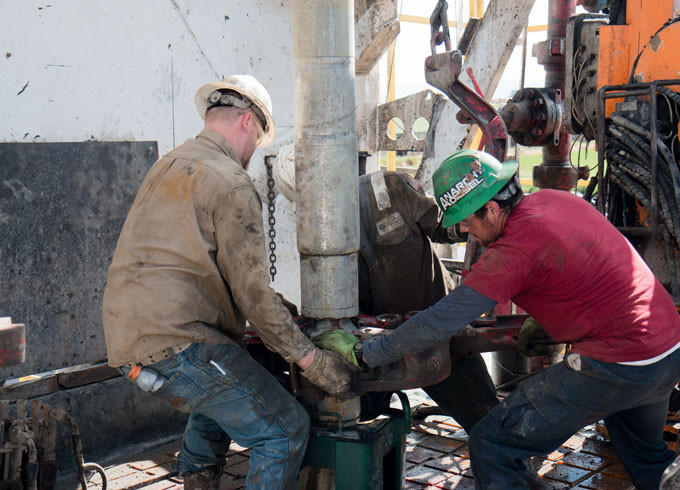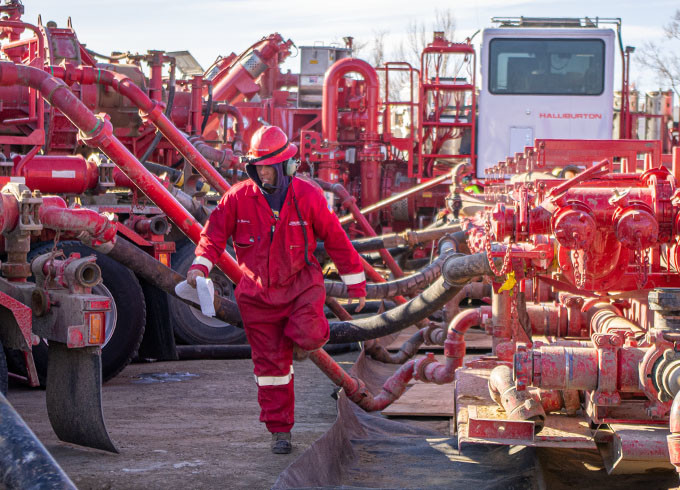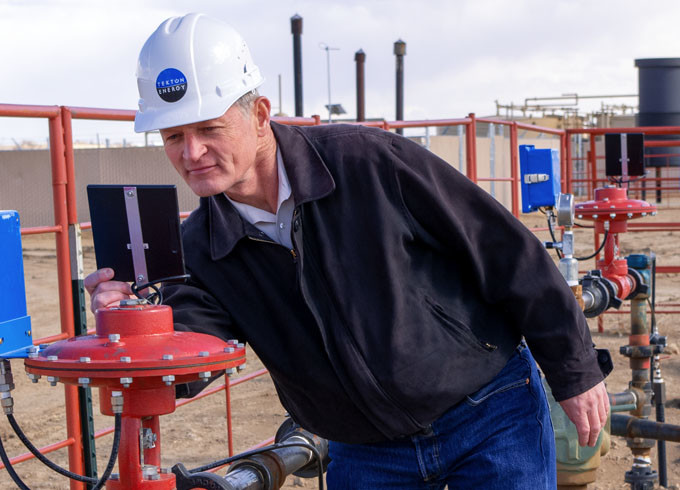
Environmental standards for drilling and production
Comprehensive regulation for drilling and production
The oil and gas industry is subject to very comprehensive regulation to ensure safe and responsible development of natural resources.
The state of Colorado plays a pioneering role in this regard. In the past eight years alone, 15 new laws have been passed, including those aimed at protecting water quality and reducing emissions to the air.
A core element of oil and gas development regulation is to ensure the integrity of the well. At no time may the groundwater be polluted. For this reason, there are detailed legal regulations that specify how the well is to be piped and cemented.
Through a close-meshed system of controls, the state ensures that over the entire life of the well, the steel piping and cement are up to the demands of production. If it turns out that a well leaks or is no longer safe, it must be abandoned and backfilled.
This includes regular checks of the water quality in a certain radius around the well before and after the drilling.


Strict regulation in hydraulic fracturing


Another important element is the control of emissions into the air. In particular, this involves the reduction of the greenhouse gases methane and ethane as well as so-called volatile organic compounds.
Since 2014, operators of oil and gas wells have been required to ensure that emissions are reduced by at least 95% by using technical options and best management practices.
Other regulations control the handling of field pipelines, the distance from settlements, the handling of pollution or the protection of wildlife during oil and gas development.
When using the so-called hydraulic fracturing method, the operator must disclose which chemical compounds and auxiliary materials are used.
The penalties for an offence have been drastically increased in recent years.
Over-fulfilment of the requirements by Deutsche Rohstoff
It goes without saying that the subsidiaries of the Deutsche Rohstoff Group commit themselves to fully comply with the legal provisions at all times.
In many cases we go beyond the legal requirements. For example, we have been voluntarily erecting noise protection around our well pads for years. It prevents neighbors from being affected by noise, light or dust during the drilling work. In the meantime, this procedure has established itself as best practice in the Wattenberg field.
As a matter of principle, we want to apply the best available methods and procedures to minimize the risk of infringements and make our contribution to the sustainable development of natural resources.


